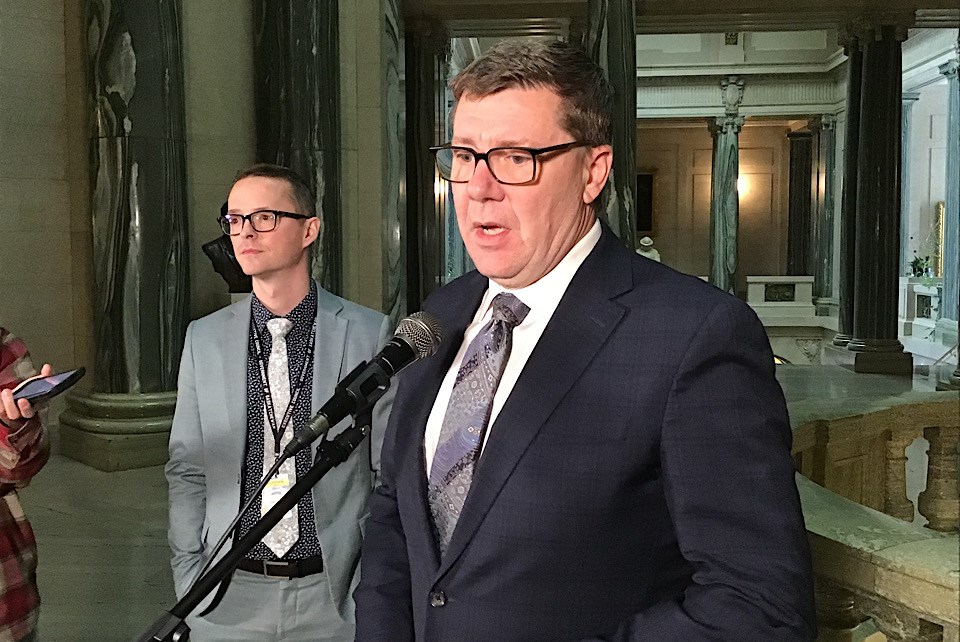REGINA - It is possible the issue of whether Saskatchewan should move to a “compassionate care” drug treatment model could be a hot topic at the Legislature later this fall.
Premier Scott Moe hinted during his media availability with reporters on Wednesday that the province is looking at that model, one in which those with drug addictions could be forced to go into treatment.
“I think the next discussion that you will see — and it's already happening in BC and Alberta but across Canada — is: is there a point where individuals have unfortunately found themselves in a an addictive state where they just simply are unable to make their own short-term health care decisions? And that's where the compassionate care discussion comes around…
“I likely have more to say on that as we find our our way into the fall session here.”
But Moe added that right now they are “very focused” on increasing the number of police officers and “increasing the consequences for those that are bringing poisonous drugs into our community.”
“… Enforcement of the laws that we have is part of it, increasing the consequences for those that are choosing to bring drugs into our community is part of it, and offering every opportunity for recovery to those that, as I say, unfortunately have slipped into the life of addictions needs to be the focus of it all.”
Moe described the conversation on compassionate care as one that “most of Canada, if not all of Canada, is going to have in the months ahead. Where we land in various provinces might be slightly different, but it is a conversation that is happening now.”
As for how it would look in Saskatchewan, Moe said he could not give those details yet, because “we're not quite at the summation of that conversation as we speak.”
“We're talking to those that have been through this, you know, with some lived experience from a family perspective and the individual perspective, and as well as talking to a number of others that offer supports in this space.”
“So I don't have an answer on precisely where we're going to land yet, but I think it is incumbent on us to have the conversation and to see other provinces that are moving in this direction, namely British Columbia and Alberta thus far, but it is coming up in other provinces as well.”




